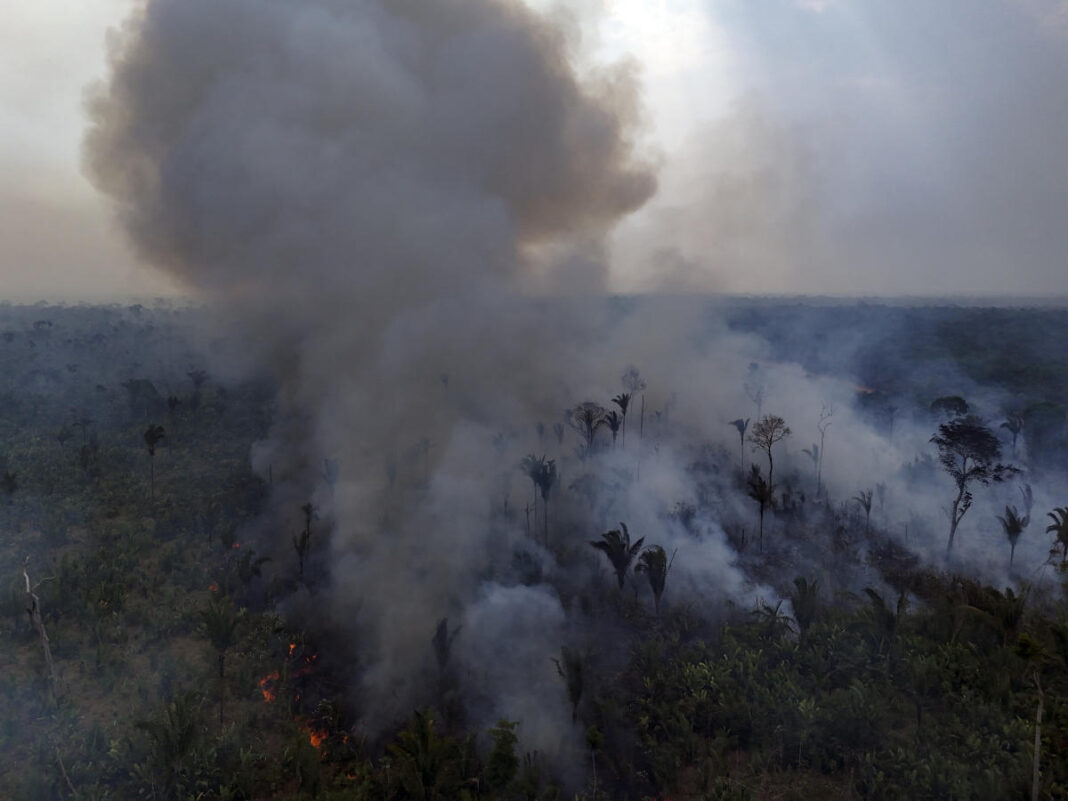Extreme Weather in 2024: A Review of Mother Nature’s Fury
2023 was a year that set a high bar for extreme weather events, but 2024 is on track to surpass it in ways we never imagined. This past year brought more than just rising temperatures; it brought devastation and chaos that shook the very foundations of our world.
The Story So Far: A World in Turmoil
As we delve into the events of 2024, we are greeted with a chilling narrative of man-made warming wreaking havoc on our planet. The World Weather Attribution (WWA) released its annual “Extreme Weather” report, painting a grim picture of unrelenting heatwaves, droughts, wildfires, storms, and floods. The numbers speak for themselves – 3,700 lives lost, 26 catastrophic weather events, and millions displaced.
Unveiling the Catastrophe: A Closer Look at the WWA Report
The WWA report sheds light on the grim reality of our changing climate. Climate change, fueled by a record-breaking increase in man-made warming, played a significant role in the chaos of 2024. From historic droughts in the Amazon to raging wildfires in critical ecosystems like the Pantanal Wetland, the impact of climate change was undeniable.
The Ripple Effect: Consequences Beyond Measure
The effects of climate change rippled across the globe, leaving no corner untouched. From 41 additional dangerous heat days to record-breaking rainfall and flooding, the signs of a planet in distress were everywhere. The WWA report highlighted how warmer atmospheres led to heavier rainfall, fueling catastrophic floods and deadly hurricanes like Helene, a Category 4 Hurricane that ravaged America in September.
A Call to Action: Resolutions for a Better Tomorrow
In the face of such devastation, the WWA set forth critical resolutions for 2025. The need for a faster shift away from fossil fuels, improved early warning systems, better reporting of heat-related deaths, and increased financing for vulnerable regions were among the key recommendations. It is a call to arms for us all to come together and combat the rising tide of climate change.
Conclusion
As we reflect on the events of 2024, it becomes clear that the time for action is now. The world is at a crossroads, and the choices we make today will shape the future for generations to come. Let us heed the warnings of the past year and work towards a more sustainable and resilient world for all.
Frequently Asked Questions
- How did climate change impact the events of 2024?
Climate change played a significant role in fueling extreme weather events like heatwaves, droughts, wildfires, and floods in 2024. - What were some of the key findings of the WWA report for 2024?
The WWA report highlighted the record-breaking increase in man-made warming, leading to devastating consequences like loss of life, displacement of millions, and ecological damage. - What ecosystems were most affected by climate change in 2024?
The Amazon rainforest and the Pantanal Wetland experienced severe droughts and wildfires, resulting in significant biodiversity loss. - What are some of the recommended resolutions for combating climate change in 2025?
The WWA called for a faster shift away from fossil fuels, improved early warning systems, better reporting of heat-related deaths, and increased financing for vulnerable regions. - How can individuals contribute to mitigating climate change impacts?
Individuals can make a difference by reducing their carbon footprint, supporting sustainable practices, and advocating for climate action at all levels. - What role do natural climate patterns like El Niño play in extreme weather events?
While natural climate patterns like El Niño can influence weather events, the WWA report found that climate change played a larger role in fueling extreme events in 2024. - What are the economic implications of climate change-related disasters?
Climate change-related disasters can have significant economic impacts, leading to billions of dollars in damages, loss of livelihoods, and disruptions to global supply chains. - How can countries work together to address the challenges of climate change?
Countries can collaborate on international agreements, share resources and technology, and support vulnerable nations in adapting to and mitigating the impacts of climate change. - What are some of the long-term consequences of climate change on ecosystems and biodiversity?
Climate change can lead to habitat loss, species extinction, disruption of food chains, and changes in ecosystem functions, affecting biodiversity and ecosystem services. - What can readers do to stay informed and engaged in climate change issues?
Readers can follow reputable sources for climate news, educate themselves on the science of climate change, support organizations working on environmental conservation, and advocate for policies that address climate change.Tags: Climate Change, Extreme Weather, WWA Report, Amazon Rainforest, Pantanal Wetland, Climate Action, Global Impact.

